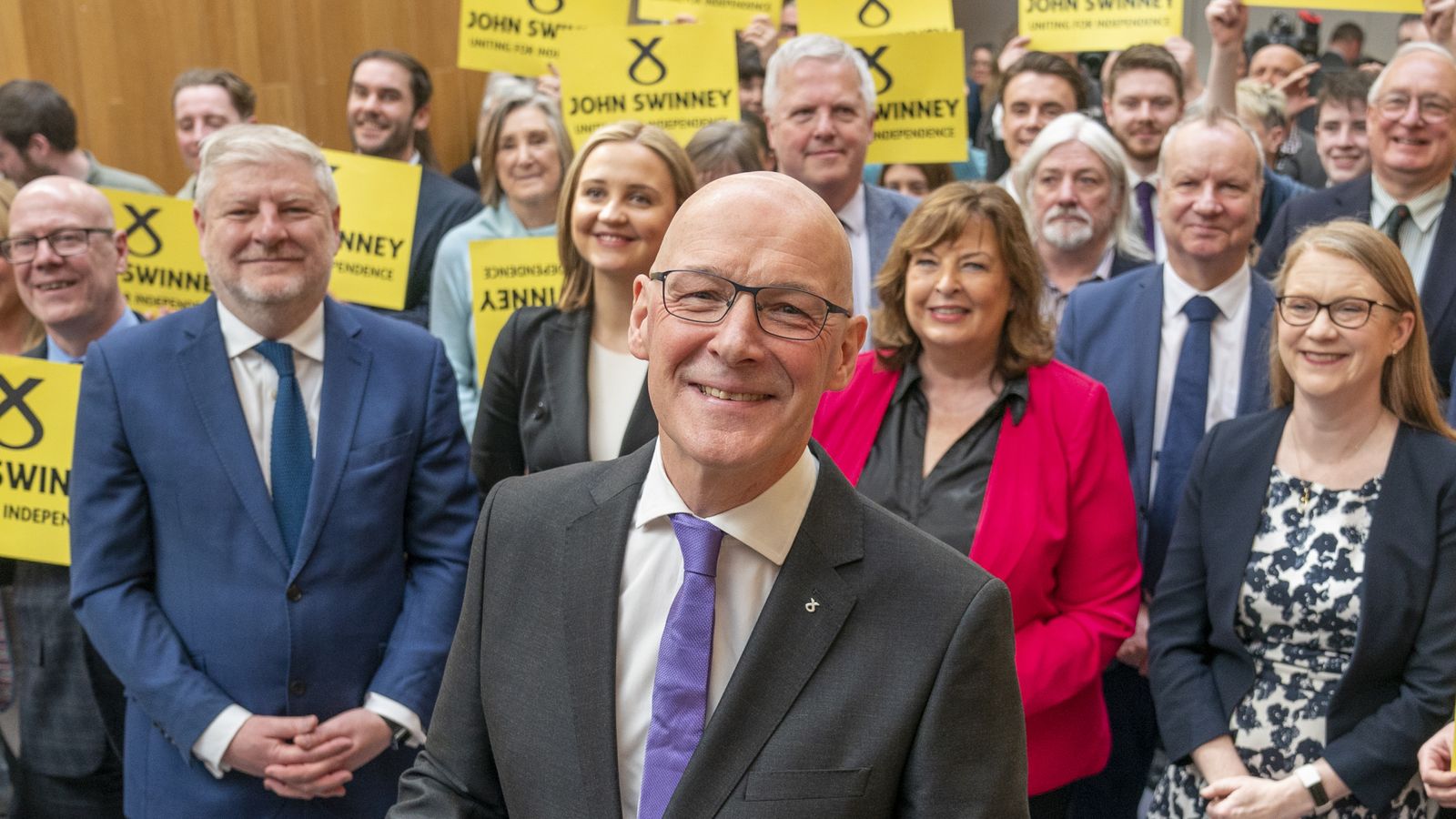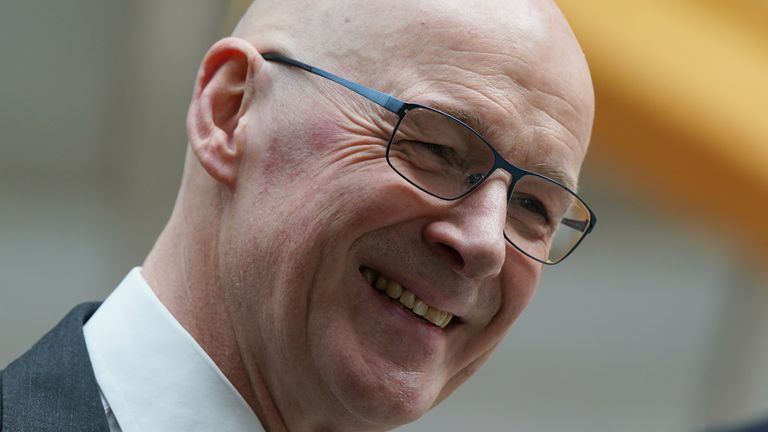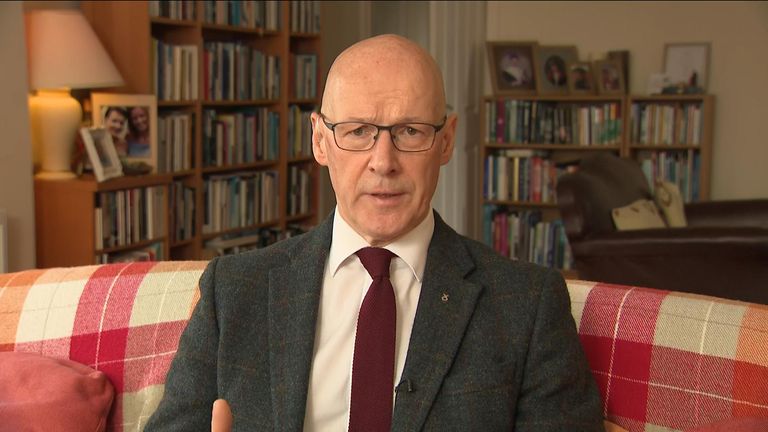SNP leadership race: John Swinney new party leader and is now set to become Scottish first minister


John Swinney has won the SNP leadership contest and is set to be named as Scotland’s new first minister, replacing Humza Yousaf.
Mr Swinney could become Scotland’s seventh first minister as early as Tuesday.
The nominations closed at 12pm on Monday, with the SNP confirming Mr Swinney was the sole nominee.
He is expected to give a speech later in the day.
The former deputy first minister, who served under close ally Nicola Sturgeon, emerged as a frontrunner following Mr Yousaf’s resignation last week.
Former finance secretary Kate Forbes had been tipped to join him, but later announced she would not stand and instead threw her support behind Mr Swinney.
Mr Swinney has said he would want Ms Forbes to “play a significant part” in his government if elected as first minister.
Potential challenger Graeme McCormick also withdrew his bid at the 11th hour.
The veteran SNP activist claimed he had secured the 100 nominations from 20 branches needed to enter the contest but backed out of the campaign on Sunday evening after a “lengthy and fruitful conversation” with Mr Swinney.
Advertisement
The SNP has appeared keen to avoid an explosive leadership contest similar to the one that followed Ms Sturgeon’s resignation.
Last year’s race, involving Mr Yousaf, Ms Forbes and now Alba Party MSP Ash Regan, featured rows over religious beliefs, arguments about the recollection of past events, and widespread criticism of secrecy surrounding the vote.
It also led to the resignation of Ms Sturgeon’s husband Peter Murrell as SNP chief executive.
Scottish Tory leader Douglas Ross congratulated Mr Swinney on becoming SNP leader for a second time, but urged him to abandon his “relentless push for independence”.
Mr Ross added: “It’s difficult to see how he can be the fresh start Scotland needs, when he’s the ultimate continuity candidate.”
Please use Chrome browser for a more accessible video player

10:41
John Swinney speaking to Sky News
Read more:
Who is John Swinney?

Keep up with all the latest news from the UK and around the world by following Sky News
What happens next?
Mr Swinney is now clear to take over as SNP leader, but will need to seek parliamentary approval to succeed Mr Yousaf as first minister.
The timing is decided by the parliamentary bureau, and could take place as early as Tuesday.
The parliament will have 28 days to nominate a replacement for Mr Yousaf once his resignation has been accepted by the King.
As the SNP is comfortably the largest party in Holyrood, the onus is on them to find a new leader who can work with other parties in a minority government.
The SNP’s tally of 63 MSPs leaves them just short of a majority in the 129-member parliament, meaning politicians from other parties would need to be persuaded to either vote for Mr Swinney, or at least abstain in the ballot, for the party to be successful.
The leaders from other political parties can also put themselves forward and MSPs can nominate a candidate, although it must be seconded by another member.
If that happens, any candidate that secures more than half of all votes will win the nomination.
If no one reaches that threshold, the candidate with the fewest votes will be eliminated – with the process repeated until the candidates are whittled down to two.
At that point, a candidate will only require a simple majority to win.
Whoever wins the vote is then formally appointed by the King.
An official swearing-in ceremony at the Court of Session in Edinburgh would then take place.
However, if no new first minister can be selected within the 28 days, the Scottish parliament would be forced to hold an extraordinary general election.
Patrick Harvie, Scottish Greens co-leader, said: “Scotland needs a period of stable government. Mr Swinney knows that if he is to have our support then it must be on the basis of progressive policies that help us to tackle the climate crisis and build a fairer and more equal future.”
Mr Harvie said his party remains “utterly committed” to the policies delivered as a result of the Bute House Agreement and will “oppose any move away from them or steps to dilute them”.
He added: “We are committed to delivering on our vision of a fairer, greener and more equal Scotland, and are open to talks with John Swinney and his team about how we can work together to make that happen.”